By Hunter Venters. Special to the Clarion-Ledger Sunday print edition (September 16)
What is technology? It’s not just cell phones and computers. Cars, clocks, lights, the steam engine—all of these things are technology. Technology defines our modern society. Whether we mean to or not, it is the thing we use to separate ourselves from what we see as the hardships of the past.
Now, what would happen if all of that technology were to stop?
More specifically, what would happen if all of the technology in one place were to stop working, while another place was left completely the same? What about on a planetary scale, where one planet had spacecraft and fusion reactors, and another had fire, stone tools, and the wheel?
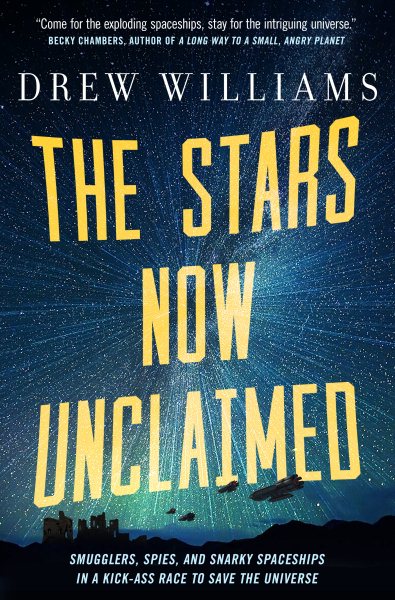 This is what Drew Williams posits in his The Stars Now Unclaimed, the first book in his planned Universe After series. The universe he created is a hundred years in the aftermath of a disaster called “the pulse,” which filled every corner of space with a kind of radiation that selectively destroys technology. The result is a patchwork galaxy of planets on all levels of technological advancement.
This is what Drew Williams posits in his The Stars Now Unclaimed, the first book in his planned Universe After series. The universe he created is a hundred years in the aftermath of a disaster called “the pulse,” which filled every corner of space with a kind of radiation that selectively destroys technology. The result is a patchwork galaxy of planets on all levels of technological advancement.
And while the post-pulse universe isn’t great, life before the catastrophe is not described to be as idyllic as some science fiction might speculate. With the advance technology of the future comes advanced warfare, war that spanned solar systems and decimated planets.
War is a major theme in the novel. Much of the book deals with the effects of war on both society and the individual. It makes note of the rationalization of violence and death, and how easily unspeakable acts can be committed in the service of the “greater good.”
The story of the novel begins with the discovery that “the pulse” has, for some unknown reason, given children throughout the universe supernatural abilities. Jane Kamali, the narrator, is tasked by a sect known as the “Justified” to find these children and deliver them to her superiors.
It is refreshing to find in genre fiction a female protagonist who is not defined by shallow characteristics, and is instead confident, self-sufficient, and often proves to be tougher and smarter than some of the book’s male characters. I tip my hat to Williams for crafting a story with many strong female characters without making any of them tropes or tokens. Jane stands on her own, and as a reader, you feel like she could take on the entire galaxy by herself.
The biggest threat to the book’s characters is The Pax, a faction of obsessive zealots who want to absorb the entire universe into their uniformity. The Pax were, coincidentally, completely unaffected by the pulse, and therefore think that they were “chosen” to rule the galaxy; and with their army of brainwashed, disposable soldiers, they may succeed.
The Pax are a simple enemy, and are reminiscent enough of real-world regimes to function well in the story without seeming like a made-up boogeyman. Jane and those aboard her ship find themselves on the run from the Pax for most of the book, in a race to take a young girl to the Justified and keep her out of the clutches of the Pax, who want to weaponize her special abilities.
The Stars Now Unclaimed combines some of the best qualities of classic science fiction into something that still feels fresh and new. It gives off that familiar vibe to fans of sci-fi without relying on clichés. Williams does some fantastic world-building in the novel, and crafts a universe that feels massive without making the book feel too hefty, by simply showing us a small slice of it. Overall, the book is a prime example of classic sci-fi made new, and I certainly look forward to where Williams takes the series next.
Hunter Venters is a graduate of Belhaven University. He currently works as a bookseller at Lemuria Bookstore in Jackson.
Signed first editions of The Stars Now Unclaimed are available here.



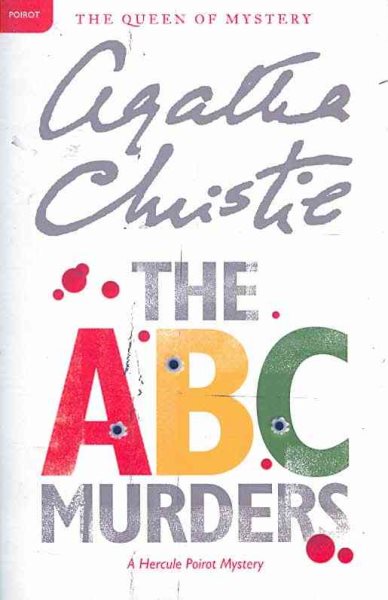 The A.B.C. Murders
The A.B.C. Murders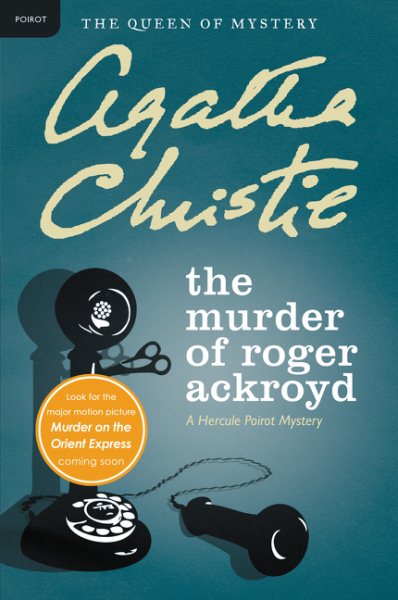 The Murder of Roger Ackyroyd
The Murder of Roger Ackyroyd After the Funeral
After the Funeral A Murder is Announced
A Murder is Announced A strange vision of the future in which all of existence is affected by a an expanding calamity known only as “The Pulse,” which degrades technology and sends entire planets back to the stone age while leaving others completely untouched: This is the world of
A strange vision of the future in which all of existence is affected by a an expanding calamity known only as “The Pulse,” which degrades technology and sends entire planets back to the stone age while leaving others completely untouched: This is the world of 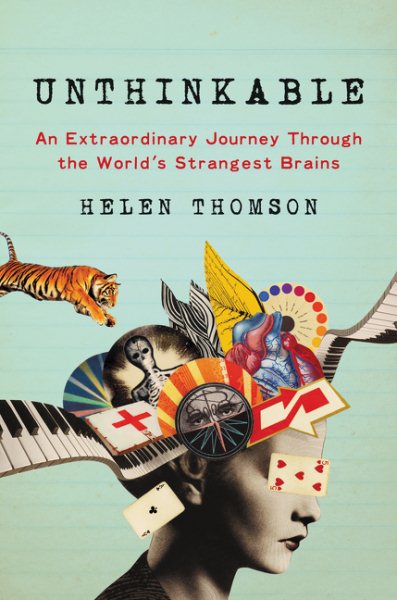 But when I looked at Unthinkable when we got them in, the cover just grabbed ahold of my attention. Each chapter focuses on a real person from around the world and the rare brain disorder they have. The chapter that made me buy this book is about a man named Graham who, for three years, believed he was dead. Objectively, he knew he wasn’t. He was able to walk and talk and tell the doctor he was “dead,” but for some reason, his brain wasn’t letting him grasp that he was alive.
But when I looked at Unthinkable when we got them in, the cover just grabbed ahold of my attention. Each chapter focuses on a real person from around the world and the rare brain disorder they have. The chapter that made me buy this book is about a man named Graham who, for three years, believed he was dead. Objectively, he knew he wasn’t. He was able to walk and talk and tell the doctor he was “dead,” but for some reason, his brain wasn’t letting him grasp that he was alive. I finally chose The Book of Essie to break my non-reading streak, and I was determined to not give up on it. So when I was on a plane on my way to Turks and Caicos for a senior trip, finding myself about a third of the way into the novel and questioning whether or not I should continue, I felt defeated. Would I ever read another book again? I was debating sliding the book back into my carry on when I scanned the page I was on and saw a mention of the school I’ll be attending this fall: The University of the South, which is relatively small, so I took this random coincidence as a sign that the wind spirits wished me to continue in my endeavor, and I sure am glad that I listened to them.
I finally chose The Book of Essie to break my non-reading streak, and I was determined to not give up on it. So when I was on a plane on my way to Turks and Caicos for a senior trip, finding myself about a third of the way into the novel and questioning whether or not I should continue, I felt defeated. Would I ever read another book again? I was debating sliding the book back into my carry on when I scanned the page I was on and saw a mention of the school I’ll be attending this fall: The University of the South, which is relatively small, so I took this random coincidence as a sign that the wind spirits wished me to continue in my endeavor, and I sure am glad that I listened to them. With a Caldecott Honor under its belt, No, David! has become a fixture in households around the country for its quick and funky drawing style and light-hearted humor. Meet David, a typical young boy who just can not seem to keep out of trouble. This treasure is based on author David Shannon’s first autobiography that he wrote at just five years old. Delve into the sometimes chaotic world of No, David! with a little bit of humor and get ready for trouble!
With a Caldecott Honor under its belt, No, David! has become a fixture in households around the country for its quick and funky drawing style and light-hearted humor. Meet David, a typical young boy who just can not seem to keep out of trouble. This treasure is based on author David Shannon’s first autobiography that he wrote at just five years old. Delve into the sometimes chaotic world of No, David! with a little bit of humor and get ready for trouble! In the sequel to How I Became a Pirate (which is arguably better than the original), David Shannon arrives again on this list for even more fantastic illustrations and with Melinda Long’s funny storytelling, this duo is bound to hit it out of the park. With a title that good, how can you pass it up? Jeremy and the crew are back at it again in the quest of babysitting his baby sister and (somehow) also finding treasure!
In the sequel to How I Became a Pirate (which is arguably better than the original), David Shannon arrives again on this list for even more fantastic illustrations and with Melinda Long’s funny storytelling, this duo is bound to hit it out of the park. With a title that good, how can you pass it up? Jeremy and the crew are back at it again in the quest of babysitting his baby sister and (somehow) also finding treasure! Has your toddler ever been grumpy over absolutely nothing? This book is for you. Jim Panzee, the title monkey, is just having a grumpy day and can’t seem to get out of his sour mood. Follow this adorable character and his equally charming friends in the quest of not being so grumpy.
Has your toddler ever been grumpy over absolutely nothing? This book is for you. Jim Panzee, the title monkey, is just having a grumpy day and can’t seem to get out of his sour mood. Follow this adorable character and his equally charming friends in the quest of not being so grumpy. Ian Falconer’s series of books details the life of Olivia, a young pig with a sassy attitude who might not be so different from most young human girls. Girls can relate to her and parents can laugh a all of her shenanigans and wild stories that seem oh-so-familiar. In the books, Olivia strives to be different and stand out against the crowd, her dreams filled with applause and encores from a packed audience. The Olivia books are charming, entertaining, and a joy to read with young girls.
Ian Falconer’s series of books details the life of Olivia, a young pig with a sassy attitude who might not be so different from most young human girls. Girls can relate to her and parents can laugh a all of her shenanigans and wild stories that seem oh-so-familiar. In the books, Olivia strives to be different and stand out against the crowd, her dreams filled with applause and encores from a packed audience. The Olivia books are charming, entertaining, and a joy to read with young girls.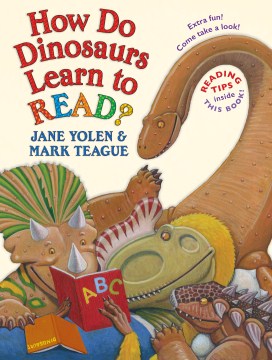 How Do Dinosaurs is great for young boys and girls who love dinosaurs and parents who want books in a series that have concepts such as love, friends, pets, school, bedtime, etc. With funny and beautiful illustrations, one can’t help but be sucked into this fun, not so imaginary world where dinosaurs rule.
How Do Dinosaurs is great for young boys and girls who love dinosaurs and parents who want books in a series that have concepts such as love, friends, pets, school, bedtime, etc. With funny and beautiful illustrations, one can’t help but be sucked into this fun, not so imaginary world where dinosaurs rule. Any explanation needed? Where The Wild Things Are is the PERFECT book for any child. It’s a classic, wonderful for both girls and boys, and a way for parents to reminisce about their own childhood. The story is magical, enjoyable, and has an ending to warm anyone’s heart. The art paired with the spectacular writing allows the reader (or readers) to be fully immersed in the story as if they are walking beside its main character, Max, all along. Let yourself go wild with this spectacular classic, bound to keep moving down throughout the generations.
Any explanation needed? Where The Wild Things Are is the PERFECT book for any child. It’s a classic, wonderful for both girls and boys, and a way for parents to reminisce about their own childhood. The story is magical, enjoyable, and has an ending to warm anyone’s heart. The art paired with the spectacular writing allows the reader (or readers) to be fully immersed in the story as if they are walking beside its main character, Max, all along. Let yourself go wild with this spectacular classic, bound to keep moving down throughout the generations. I’ll end this list with one of my favorite children’s books I have read this summer, focusing on the best book of the series. Ada Twist, Scientist along with Iggy Peck, Architect and Rosie Revere, Engineer are possibly the cutest children books I have ever had the privilege to read, and that is a lot coming from me, a person who probably says the word “cute” more times a day than I would like to admit. There is just something about these books that I cant help but adore–the way the rhyming in the books flows and creates such an amazing voice in the books is almost magical. The illustrations are unique and creative, and seem to have been done with care. I also love the adding of a main character of color in the series with Ada Twist, Scientist. The book seems to be the most “polished” book of the series, the story engages the reader, the colors in the illustrations are vibrant, and every child I have read it to adore it.
I’ll end this list with one of my favorite children’s books I have read this summer, focusing on the best book of the series. Ada Twist, Scientist along with Iggy Peck, Architect and Rosie Revere, Engineer are possibly the cutest children books I have ever had the privilege to read, and that is a lot coming from me, a person who probably says the word “cute” more times a day than I would like to admit. There is just something about these books that I cant help but adore–the way the rhyming in the books flows and creates such an amazing voice in the books is almost magical. The illustrations are unique and creative, and seem to have been done with care. I also love the adding of a main character of color in the series with Ada Twist, Scientist. The book seems to be the most “polished” book of the series, the story engages the reader, the colors in the illustrations are vibrant, and every child I have read it to adore it.


 Like, really selfish. She also makes sure to remind the reader every so often of how pretty and thin she is. But I can’t help but like her. Go figure. It’s the year 2000, and the narrator has decided to put her life on hold and hibernate for a year. She goes to the yellow pages and accidentally finds the worst psychiatrist in New York City. Faking insomnia to get sleeping pills, her psychiatrist throws every pill possibly related to this condition at her. This suits her just fine as she thinks up new cocktails of pharmaceuticals to take to make her sleep more and dream less.
Like, really selfish. She also makes sure to remind the reader every so often of how pretty and thin she is. But I can’t help but like her. Go figure. It’s the year 2000, and the narrator has decided to put her life on hold and hibernate for a year. She goes to the yellow pages and accidentally finds the worst psychiatrist in New York City. Faking insomnia to get sleeping pills, her psychiatrist throws every pill possibly related to this condition at her. This suits her just fine as she thinks up new cocktails of pharmaceuticals to take to make her sleep more and dream less.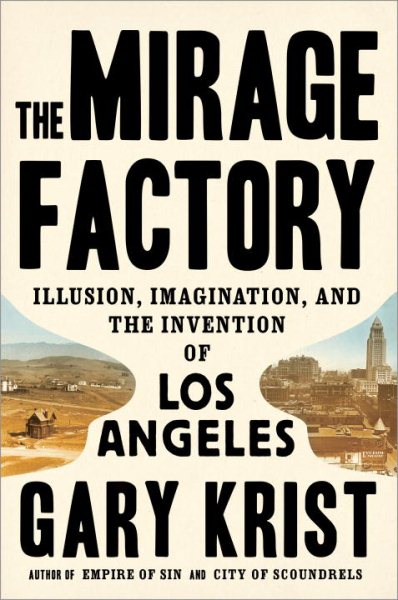 I have come to the conclusion that Krist is the great pop urban historian of today. In lucid, well-researched prose, he tells not of great American city’s beginnings, but the genesis of the idea of that city–what each metropolis has to offer to the culture and popular imagination of this country. He returns this year with
I have come to the conclusion that Krist is the great pop urban historian of today. In lucid, well-researched prose, he tells not of great American city’s beginnings, but the genesis of the idea of that city–what each metropolis has to offer to the culture and popular imagination of this country. He returns this year with 

 He brought a rig with a custom decorative wrap on the trailer. It looked awesome. Alas, I was visiting my brother in Nashville at the time.
He brought a rig with a custom decorative wrap on the trailer. It looked awesome. Alas, I was visiting my brother in Nashville at the time. This gives Murphy an unexpected vantage point: he certainly illuminates his world on the highway; I could see into the cabs of trucks from the Greyhound bus I was riding. Cummins, a diesel engine manufacturer whose existence I had spent decades being oblivious of, had a headquarters in Indianapolis that I noticed immediately upon arrival.
This gives Murphy an unexpected vantage point: he certainly illuminates his world on the highway; I could see into the cabs of trucks from the Greyhound bus I was riding. Cummins, a diesel engine manufacturer whose existence I had spent decades being oblivious of, had a headquarters in Indianapolis that I noticed immediately upon arrival.